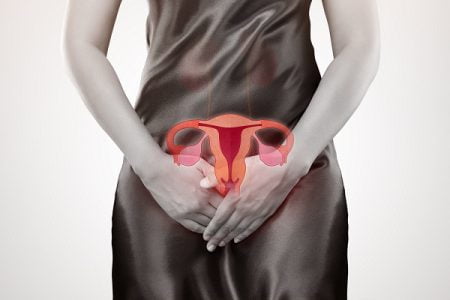Living With Cervical Cancer
- Updated on: Jul 12, 2024
- 3 min Read
- Published on Nov 12, 2020

Living With Cervical Cancer
The treatment for cervical cancer in women can be both worrying and exciting. Treatment helps to remove or destroy cancer. Although it is relieving that the treatment has a strong chance of being successful, there are always chances to reoccur. Chances of getting cervical cancer will be none if the women get regularly screened through pap tests.
In some women, cervical cancer cannot be cured completely, and therefore they undergo regular treatments with chemotherapy, radiation therapy, or other therapies to keep cancer in check. These treatments, particularly chemotherapy and radiotherapy, make a person tired and are harmful after a certain stage. It is often seen that some women with cervical cancer undergo a radical hysterectomy.
Cervical cancer survival rates depend on what stage is cancer diagnosed the patient’s overall health, and the treatment decision taken by the patient.
Survival rates are calculated on large groups of women, and they do not estimate the chances of survival of a particular woman. In the U.S., it was estimated that a majority of women diagnosed with cervical cancer were cured. Women in the early stages were easily cured and had a better outlook due to improved researches and better treatment options. Regular screening for cervical cancer does not allow it to spread further, and the earliest cure is possible.
The early-stage may result in a survival rate of about 93%, but pre-cervical cancer or pre-cancerous changes in the cervix are hard to detect. Stage 3 cervical cancer life expectancy is about 60%, whereas stage 4 cervical cancer life expectancy reduces about only 20%. Stage 4 cervical cancer metastasis can lead to lung cancer, ovarian cancer, colorectal cancer, pancreatic carcinoma, etc. Cervical cancer survival rates by age are similar to that of cervical cancer survival rate by stage. The higher the age of the patient, the lesser are the chances of survival.
Coping With Cervical Cancer
Coping With Cancer of Cervix: Daily Life and Surviving Cervical Cancer
Feelings: There are several feelings when living with cervical cancer, such as feeling numb, angry and resentful, frightened and uncertain, confused, or guilty. It is hard to stay positive while living with cervical cancer, but this is the only way to cope with cervical cancer.
Work-Life: Survivors of cervical cancer do not need to give up work. There are conditions that the patient may need regular offs for the emergencies and treatment schedules, but with this, a person can lead a normal life.
Under the Disability Discrimination Act, an employer cannot discriminate against a patient because of his or her illness. The Employer can make reasonable adjustments to help the patient to cope up with the situation. They can allow an off-time for the treatment and medical appointments and allow flexibility with the working hours.
Fertility: Unfortunately, due to the treatments, pregnancy might not be easy for cervical cancer survivors. In most patients, women cannot get pregnant due to either removal of the womb through surgery (a radical hysterectomy) or radiotherapy affects the womb that inhibits the ovaries from working. Care and emotional support by family and friends during cervical cancer and its treatment help in speedy recovery.
Read About Are We Ready To Meet The Challenge Of Cervical Cancer In Women?
Plans for Surviving Cervical Cancer
- A planned schedule for follow-up exams and tests is necessary. Even small problems due the treatment should be discussed with the concerning doctor.
- Early detection or screening tests for any other type of cancer and tests should be conducted to screen any long-term health effects due to the treatment provided.
- Diet and physical activity should be taken care of.
- Doctors recommend imaging tests at certain intervals depending upon the stage of cervical cancer and other factors. Sometimes, CT scans are also done if there are a few symptoms such as cervical cancer discharge, pelvic pain, pain during urination, etc., which may suspect cervical cancer recurrence.
Although cervical cancer is both physically or mentally draining, cervical cancer incidence and mortality rates are lesser than those of ovarian cancer. Cervical cancer metastasis is difficult to control in the later stages, and therefore early detection and treatment are recommended.












